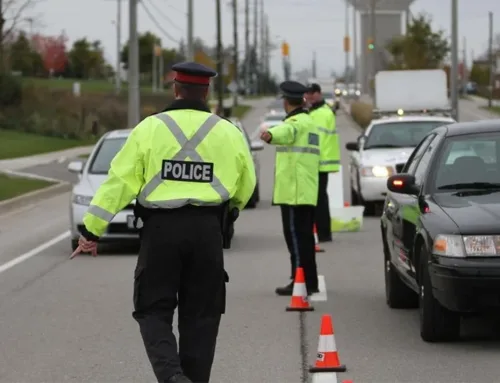Overview of Traffic Tickets and Their Connection to Accidents
Traffic tickets play a crucial role in promoting road safety by penalizing unsafe driving behaviors. In Ontario, traffic tickets are not just minor inconveniences; they are powerful tools used to regulate driver behavior and prevent accidents. When a driver violates traffic laws and causes an accident, the legal implications can be severe. Understanding the types of traffic tickets for causing accidents can help drivers avoid common pitfalls and stay safe on the road.
Common Types of Traffic Tickets for Causing Accidents
Accidents can occur for various reasons, but certain traffic violations are more commonly associated with collisions. These violations often lead to traffic tickets, fines, and other legal consequences.
Stop Sign Violations
One of the most frequent causes of accidents at intersections is the failure to stop at a stop sign. Disobeying a stop sign not only endangers the driver but also pedestrians and other motorists. In Ontario, a disobey stop sign ticket can lead to fines, demerit points, and increased insurance rates. Accidents resulting from this violation often involve a failure to yield the right of way, which can be especially dangerous in busy intersections.
Speeding Tickets
Speeding is a significant contributor to accidents across Ontario. Exceeding the speed limit reduces a driver’s reaction time and increases the severity of crashes. A speeding ticket not only carries hefty fines but can also lead to serious penalties if the speeding results in an accident. The correlation between speeding and accident severity makes speeding tickets one of the most common types of traffic tickets for causing accidents.
Red Light Violations
Running a red light is another dangerous behavior that frequently leads to accidents. This violation often occurs when drivers attempt to beat a red light, resulting in high-speed collisions. A red light ticket is issued to drivers who fail to stop at a red light, and the consequences can be severe, especially if the violation causes a crash. Running a Red light is a clear example of how traffic violations can directly lead to accidents and significant legal penalties.
Failure to Yield Right of Way
Failing to yield the right of way is a common cause of accidents, particularly at intersections and during lane changes. This violation can lead to side-impact collisions, which are often severe. Drivers who receive a ticket for causing an accident due to failure to yield may face fines, demerit points, and even a license suspension, depending on the severity of the crash.
Following too Closely
Tailgating, or following too closely, is a risky behavior that increases the likelihood of rear-end collisions. When a driver follows too closely, there is little room to react if the vehicle in front suddenly stops. This can lead to accidents that are entirely avoidable. Tickets for following too closely often come with penalties that include fines and demerit points, and such violations are a common cause of accidents on Ontario roads.
Analyzing the Impact of Traffic Violations on Safety
Traffic violations such as speeding, running red lights, and failing to stop at stop signs significantly impact road safety. These infractions increase the likelihood of accidents and can lead to severe injuries or fatalities. The impact of fines on accidents is substantial, as monetary penalties serve as a deterrent for risky driving behaviors. By enforcing strict penalties, the aim is to reduce the incidence of these violations and enhance overall road safety.
Legal Consequences of Traffic Tickets
Receiving a ticket for causing an accident comes with a range of legal consequences. Fines, demerit points, and potential license suspensions are just the beginning. Depending on the severity of the accident, drivers may also face increased insurance premiums and, in extreme cases, criminal charges. The penalties for traffic tickets related to serious accidents are designed to reinforce the importance of adhering to traffic laws and driving responsibly.
Effectiveness of Traffic Tickets in Reducing Accidents
The enforcement of traffic laws through tickets has proven effective in reducing accidents. By penalizing unsafe driving behaviors, traffic tickets act as a deterrent, encouraging drivers to adhere to speed limits, stop at red lights, and yield the right of way. The effectiveness of traffic tickets lies in their ability to promote safe driving habits, thereby reducing the overall number of accidents on the road.
Use of Automated Traffic Enforcement Tools
In recent years, automated traffic enforcement tools such as red light cameras and speed cameras have become increasingly common in Ontario. These tools are instrumental in catching violators who might otherwise escape detection. Automated enforcement is a critical component in the ongoing effort to reduce traffic accidents and ensure compliance with traffic laws.
Conclusion
Understanding the range of traffic tickets tied to accidents is crucial for all drivers. From stop sign violations to speeding, each type of ticket serves as a reminder of the importance of safe driving. The legal consequences of these violations are significant, but they play a vital role in promoting road safety and reducing accidents. By adhering to traffic laws and respecting the rules of the road, drivers can avoid these tickets and contribute to a safer driving environment for everyone.










Leave A Comment
You must be logged in to post a comment.